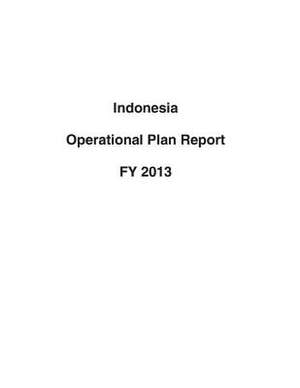Indonesia Operational Plan Report Fy 2013
Autor United States Department of Stateen Limba Engleză Paperback
Preț: 128.38 lei
Nou
Puncte Express: 193
Preț estimativ în valută:
24.57€ • 25.38$ • 20.44£
24.57€ • 25.38$ • 20.44£
Carte disponibilă
Livrare economică 26 februarie-12 martie
Preluare comenzi: 021 569.72.76
Specificații
ISBN-13: 9781503193628
ISBN-10: 1503193624
Pagini: 86
Dimensiuni: 216 x 279 x 5 mm
Greutate: 0.22 kg
Editura: CREATESPACE
ISBN-10: 1503193624
Pagini: 86
Dimensiuni: 216 x 279 x 5 mm
Greutate: 0.22 kg
Editura: CREATESPACE
